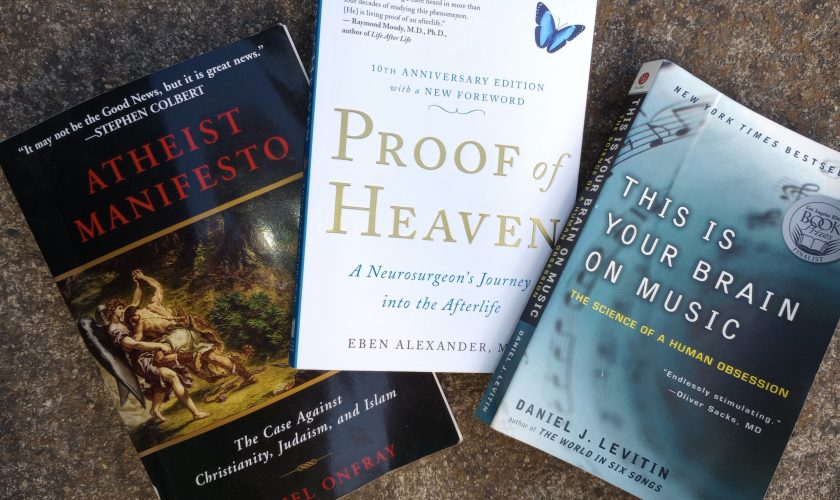The Widow’s Mite and the Widow’s Might
I’m not one to prove a point by quoting scripture, as if it puts the wisdom in us, but the Widow’s Mite story says so much about the reality of our country’s economic relations I just have to use it. Luke 21 tells of Jesus observing the collection bowl at the temple. A rich Pharisee makes a big show of putting in a relatively large amount. A widow meekly puts in a mere mite. “See,” Jesus says to his followers, “she gave more, for she gave everything she had, while he gave only a bit of what he had left over” (Luke 21). Jesus didn’t have it backwards. Though the Pharisee gave the equivalent of hundreds of dollars, while she gave only a dollar, he calls her gift “more.”
Jesus used a higher math, a higher understanding of the privilege or plight of real human beings. So should we. He cared for the abandoned and besieged. So should we. He went so far as to overturn the moneychangers’ tables, and chased them from the temple. So should we. If Jesus could peek in on the temple of our democracy, our Capitol Building in Washington, D. C., what would he see?
More importantly, what do we see? It is our responsibility to tend the daring doings of a decent democracy. We have no common collection bowl, except perhaps taxes. Taxes are what we all give to the all of us. But, as in days of yore, we see Pharisees making a big show of the “gifts,” not saying how much more they have left over, while widow put in mere mites, though it’s all she can do. Taxes are the little thing our government manages. The bigger thing is how it manages all her ordinary life needs. What about her food, phone, and heat? What about health care?
What does health care cost her and how much do the modern Pharisees make from it? Our widow is like all those in the bottom quintile of income in our country. Back in 1958 she made $7,202, the average for the bottom 20% of Americans. Forty years later, after the unprecedented prosperity of the 90’s even, she made only $7,762, up a whole $560, a factor of about zero. (All references for this sermon available on request.) She must go to the doctor. Her twenty-minute visit will cost her $40. That’s a lot for her to give, for she first has to live somewhere, eat something, and with careful management, have $40 at the end of the month.
Here is where the Widow’s Mite story has even more meaning. What seems a great amount for her to have and pay, seems like only a little to her doctor. He’ll make more than twice that for every hour he works. Back in 1958 the doctor made $75,000, over ten times what she then made. Forty years later his income rose to $106,000, up $31,000, an increase of four times her annual income. Two years later he will have received another $30,000 per year, to about $140,000. That’s the family practice doctor. The radiologist makes over double that.
Now, if I were a doctor listening to this I might resent me for saying it. If I weren’t in a Unitarian Universalist fellowship I might bite my tongue rather than point out such systemic inequalities. Fortunately, I have doctors present who agree we have neither health nor care in “health care.” Plus, I’ll admit, doctors train hard, work hard, and are due more than most people. Their responsibility is enormous, and their insurance bill reflects this. He needs her forty dollar mite all the more, as does his insurance agent and the hospital executives and the lawyers and the investors.
The top executives of our large health insurance companies make one to five million dollars a year! She can’t afford this; she’ll have to get a second job. It costs her a lot to keep the rich rich.
Some might resent me for sticking up for her against the medical/insurance complex. They might say, “Why don’t you become a doctor and then care for her at your own rate?” This individualistic approach (or avoidance) to systemic change praises heroic charity to divert us from the overweening reality of an interrelated lucrative industry’s systemic profiteering from people’s illness and need. I don’t mind wealth. I think we should all have various forms of wealth. I don’t mind that movie stars and sports stars make such ridiculous salaries. No one has to see them. It’s a luxury of life, not a need. But medical care is a need of life. Instead of sacred interactions in a humane society, we have created a system that is as much “illness profiteering” as “health care.” Life needs, like medicines and medical knowledge, ought not to be owned solely by the professionals.
It may be, as Unitarian philosopher Harry Tiebold used to say, that “professionals are those who conspire to withhold goods, information, and services from the public,” but that doesn’t mean we have to let them. Humanity owns and is due that knowledge. It shouldn’t have to cost so much to access.
It’s not just medical and insurance bills that drain her; it’s a whole array of living needs that could be delivered for less. It used to be utilities were organized to deliver our common needs in the most efficient and cost-effective way. Now, they serve managers and investors. Government used to intercede in the market, buffering the vast resources of capital. Now, they sell out to that increasing concentration of wealth. Evasive insurance companies, obscure utility bills, and overly expensive medical care – these wear the widow out, but our powerful media tells her instead to resent her government and taxes.
Which brings us back to government. We’ve been duped into thinking of government as our enemy by the very forces that make it that. They have systematically de-funded and weakened our government in order to gain advantage for themselves at the disadvantage of others. Can the widow trust the insurance commission to protect her? Can she learn the intricacies of insurance plans and actuarial tables? Can she buy access to key congress persons, luring them to do her bidding by giving them a little of the bounty she’ll receive when they do? She barely understands her medical and utility bills, much less obscure bills in congress favoring those industries. How can she track the pennies here, the dollars there, of confusing medical, phone, utility and insurance bills? How can she influence the rates they are allowed to charge?
Her income is less than $8,000. Health insurance alone would take it all, nothing left for housing or food. Those in the top quintile spend that much on only clothing and travel. Yet, her current government and media trick her into believing she’s poor … because of taxes. People now work harder all their lives but have less as they barely get by. At the end of the month and the end of our life, who has earned and who has paid? But we aren’t supposed to complain about that. We’re supposed to complain about taxes and kick the dog of the government, weakening one of our only hopes of check on this systematic impoverishment.
The two wings of the republicratic party cater to their financers, and the sacred trust in the temple of our democracy languishes. What should be the bold wonder of humanity, people freely caring for themselves, becomes back room giveaways, legal advantages sold to the highest bidder. We grow cynical, alien from a government that should be about mutual betterment. Nationalism has been sacrificed to capitalism. Some one thousand persons and businesses (like Stanley Tools) now evade supporting the society that funds them by having phony addresses in off-shore accounts, costing us some $70 billion in lost taxes a year. Not even the search for terrorist bank accounts was rationale enough for our government to open these lucrative shelters, nor did the issue appear much in the elections. The politicians and media protect these cheap sneaks and evade any attempt to actually fix it.
There is no Jesus to overturn tables or even point out the higher math of who gives more and who has less. The church that claims his title befuddles the people with otherworldly phantasmagorias. Its leaders wear smug expressions of aloof unconcern, blessing wars in the name of the Prince of Peace instead of caring for the widows like Jesus did. The widow has only her mere mite. We might care and we might not. We might help her out, providing some form of health care assurance.
Some forty million Americans go without any health insurance. Have we any vision of fixing this or any of her problems? Of course, we cannot fix the many entrenched systems of profit that drain our widow, hoping she’ll make due till we do. We must also care within the system, in spite of the system. There are doctors who give part of their services for free. There are givers at the temples who give big gifts that they don’t have to give. Philanthropy on an institutional basis and kindness on the one-to-one level of human-to-human will both ever have their place. The widow needs some cheer, some help, maybe a repair on her little house. Maybe such “faith based initiatives” have a place, for no social system will satisfy all human needs. But we would be failing our liberal religious and American traditions to drain off all our efforts into direct care only. We would be forgetting that many a social system went a long way to meeting many of those needs when people cared through their government. Government should not be thought of as a problem, our enemy; it should be us, taking care of our lands and each other. The scam of having “faith-based” churches tend to her needs is a sly evasion of her actual needs. How does loading yet another layer of burden on the meager abilities of a few well-intentioned people address the systemic impoverishment of the millions of widows and poor? Churches and families will always care, but should they dissipate that care trying to keep up with a myriad of needs made worse by a system that makes more needs than it meets?
Religions would do better to show up at the temple to tell the truths, and even overturn some tables, than to assume they can or should heal all the needs that our government worsens, then abandons. Our liberal calling is not just to feed the poor, or even just teach them to fish, but also to tend the ocean so that it is abundant. Liberals ignore their talents and forsake those who need them when we only patch up the problems. Our task is greater than that. In the history of humanitarian progress, let us remember the gradual gains of universal education, inclusive voter rights, safeguards for working conditions, help for the needy, and a whole raft of (dare I use the term?) liberal programs.
The word liberal has been stolen and slandered. There is nothing wrong with abundance, generosity, and open-mindedness. There is nothing wrong with Americans expressing an inclusive abundance in a heartfelt sense of “us,” all of us. Our founding principles and sacred documents remind us of our former faith in the possibility of a New World for all of us. It is a world, as James Luther Adams reminded us, that does not build a shining city on a festering slum. It is a new world that lets the rich be wealthy only when the widow and her kind have a full and secure life. We might help the widow’s mite become the widow’s might. We could. We used to care. She can’t do it alone. Jesus doesn’t intervene. Who cares? Whose job in a democracy is it to care?
Reverend Brad Carrier
UU’s of Grants Pass Grants Pass,
© Oregon December 1, 2002
and UU’s of Central Oregon Bend, Oregon
December 7, 2002





